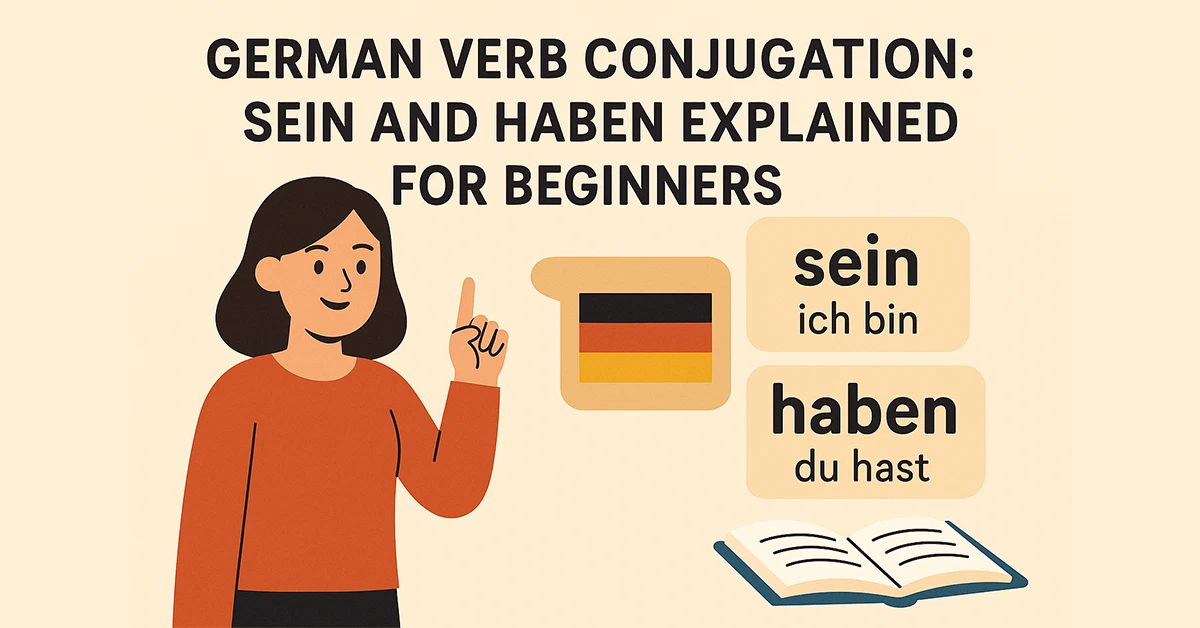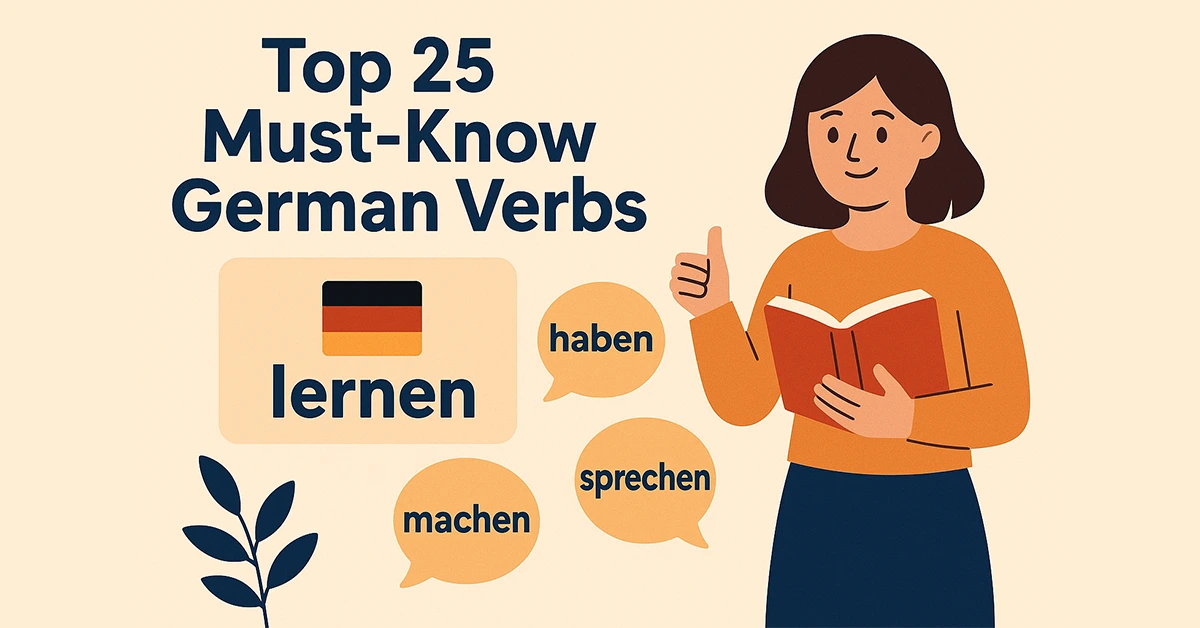present tense German
-

German Verb Conjugation: sein and haben for Beginners
Learn how to conjugate the essential German verbs sein and haben in all tenses. This beginner-friendly guide covers present, past, and perfect forms with examples.
-

Top 25 Must-Know German Verbs – Easy Conjugation Guide
Master the top 25 most useful German verbs with easy conjugation tips, pronunciation, and real-life examples. Perfect for beginners learning German verbs!